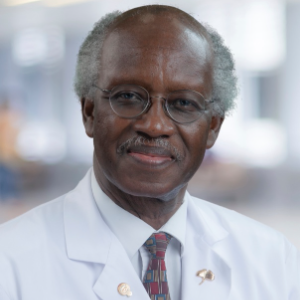Title : Ginkgo biloba extract and selected members of the insulin resistance syndrome
Abstract:
The Insulin resistance syndrome represents metabolic defects, which individually or together increase the risk of cardiovascular disease, and are usually associated with diabetes mellitus. For example, dyslipidemia (hypertriglyceridemia and decreased HDL-cholesterol and elevated LDL cholesterol) predisposes coronary artery disease, and hypertension and diabetics have an increased risk of kidney diseases. Ginkgo biloba extract is one of the most common herbal dietary supplements in the United States. Because of the Dietary Supplement and Health Education Act of 1994, no health claims can be made by dietary supplement manufacturers, but it is commonly touted to improve mental alertness. Because of the nature of chemical constituents (standardized 50:1 extract contains approximately 24% flavonol glycosides (free radical scavengers) and 6% terpenes (ginkgolides which are antagonists to platelet activating factor)), my laboratory has been interested in its effect on platelet aggregation, especially in diabetics patients who tend to have very hyperactive platelets, predisposing to them to cardiovascular diseases. This presentation summarizes our work over the course of more than 20 years. The oral glucose tolerance (75g of glucose) was used to characterize all study participants as healthy or diabetic (type 2 diabetes mellitus). In a series of studies after participants ingested 120 mg of Ginkgo biloba extract (taken as a single dose) for three months, this significantly (1) decreased platelet aggregation (mediated by collagen) and thromboxane B2 synthesis, primarily by inhibition of cyclooxygenase -1 enzyme, (2) inhibited the accumulation of Thiobarbituric acid reacting (TBAR) free radicals in platelets, and (3) unexpectedly, stimulated pancreatic beta-cell insulin production in healthy and diabetic subjects, especially those with pancreatic exhaustion. Since hyperinsulinemia is a hallmark of resistance, the hyperinsulinemic euglycemic clamp technique was employed to determine if the increased insulin production after ingestion of Ginkgo biloba extract, was the result of increased insulin resistance. The results showed that ingestion of Ginkgo biloba extract (120 mg as a single dose) in a randomized double-blind placebo control study does not alter whole body insulin resistance in non-diabetic, pre-diabetic or full-blown type 2 diabetic subjects. Taken together, Ginkgo biloba extract taken at this dose appears to be very beneficial.
Audience Take Away Notes:
- Describe the essential characteristics of Insulin Resistance Syndrome.
- Describe the two major functions of the Oral Glucose Tolerance Test.
- Describe the use of the hyperinsulinemic euglycemic clamp technique to measure whole body insulin sensitivity.
- Describe the biological activities of the major ingredients in Ginkgo biloba extract on platelet function.




